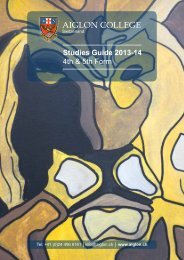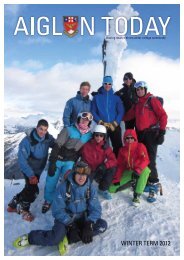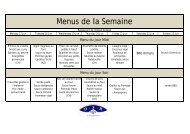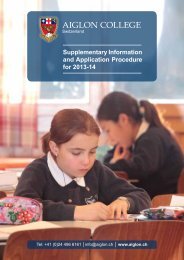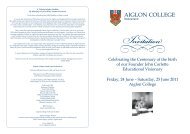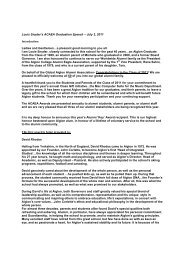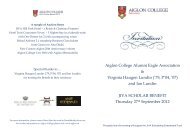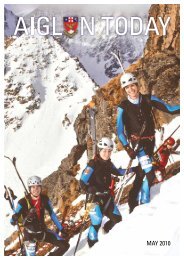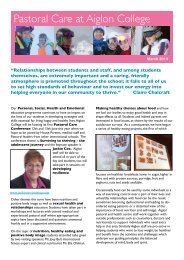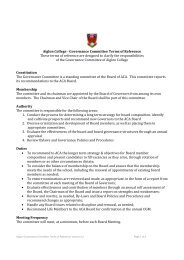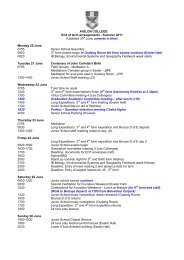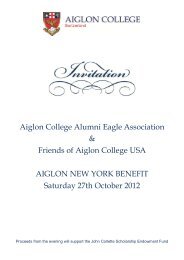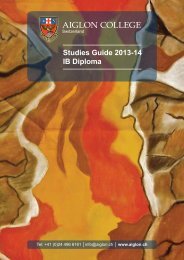Junior School Studies Guide - Aiglon College
Junior School Studies Guide - Aiglon College
Junior School Studies Guide - Aiglon College
- No tags were found...
You also want an ePaper? Increase the reach of your titles
YUMPU automatically turns print PDFs into web optimized ePapers that Google loves.
HistoryWhy History?The <strong>Junior</strong> <strong>School</strong> History courses aim to help pupils to:• enjoy the subject and develop their interest in the past;• understand the importance of evidence in the study of History and learn how to handle iteffectively;• nurture their critical thinking skills;• form their own opinions and learn how to support them with evidence;• enjoy discussion and appreciate different viewpoints and interpretations;• develop important written and communication skills;• present their work clearly and neatly.Syllabus<strong>Junior</strong>s study several very colourful and exciting periods of History.The 1st Form launches straight in with a study of the Vikings. Is our usual image of them as invaders andwarriors correct, or was there far more to them? Through texts, digital material, maps and thinking games weaim to find out. Students are also introduced to the big ideas and important skills needed for studying historysuccessfully: chronology, empathy and the use of sources, etc. These skills will be revisited and practisedthroughout our main period of study for the year. We then move on to The Middle Ages. This is a colourful andexciting time with plenty to stimulate the imagination: knights in armour, mighty castles, huge cathedrals,small villages, religious wars and ghastly punishments and tortures. Something for everyone to get their teethinto!In the first half of the 2nd Form, students are involved in an in-depth study of several different aspects ofthe Renaissance. Art, architecture, medicine, astronomy and, of course, printing, all underwent hugechanges in this period and we use texts, posters, videos and plenty of discussion to understand why thesechanges took place and to see what a huge impact they had on western civilisation. This awakeninginterest in the world led naturally into the age of exploration - our theme for the second half of the year -which offers students the opportunity for individual research using the Internet and for putting ICT skills intopractice as we look at Polar exploration and man’s attempts to get into space.ICTThis is taught in an ICT suite with one computer for each pupil. The 1st Form has one hour of ICT a week andthe 2nd Form has two hours.SyllabusThe course covers a wide curriculum:1st Form:• <strong>Aiglon</strong> <strong>College</strong> Acceptable Use Policy• <strong>Junior</strong> <strong>School</strong> touch typing course• Word processing• Data handling using databases, and data modelling using spreadsheets• Image manipulation using graphics software• Desktop publishing• Control and automation• Understanding the Internet (safety) and advanced search techniques.2nd Form:• Web design competition using HTML and Komposer.• Introduction to control using Economatics Logicator and Fishertechnik models.• Presentation techniques - introduction to video editing.<strong>Aiglon</strong> <strong>Junior</strong> <strong>School</strong> <strong>Studies</strong> <strong>Guide</strong> 2013-14 19



